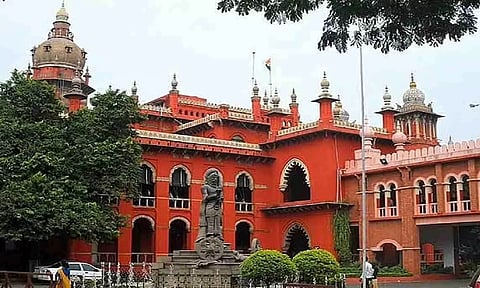

CHENNAI: Authorities colluding with individuals indulging in illegal construction instead of initiating action against the activities will be held liable and accountable for the illicit structures, held the Madras High Court while ordering the demolition of a marriage hall built without planning permission.
While dismissing a plea seeking to quash the lock and seal and demolition notice issued by the city corporation, the division bench of Justices SM Subramaniam and K Rajasekar observed that urban areas are becoming concrete jungles because of corrupt officials.
The bench wrote, "Unauthorised constructions are causing havoc. If it is allowed to continue, people cannot peacefully live as it could result in an anomalous situation."
The Right to Life, as ensured by the Constitution of India, must be protected. "In the event of illegalities and irregularities, the right to peaceful life is not protected. Therefore, the authorities are bound to be held liable and accountable for such illegal constructions," the bench held, adding that unless such authorities are personally held accountable, it would be very difficult to curb unauthorised constructions in urban areas.
Petitioner KC Jayabalan moved the HC seeking to quash the demolition notice issued by the Corporation against his marriage hall in Adyar, as it was constructed with proper permission.
He submitted that action was initiated to get permission for the building plan, and necessary payments were made to the Corporation; hence, he sought to quash the demolition notice.
However, the bench refused the contention as there is no provision to grant retrospective building plan permission to the petitioner from the date of its construction. Building regulations are to be scrupulously followed to protect the safety and security of the people in general, wrote the bench.
Mere payment of property tax and electricity charges would not be grounds to save the unauthorised construction, which would not only cause inconvenience to the general public but result in a threat to safety and security, added the bench.
The petitioner was directed to demolish his marriage hall, obtain fresh planning permission, and proceed with construction.